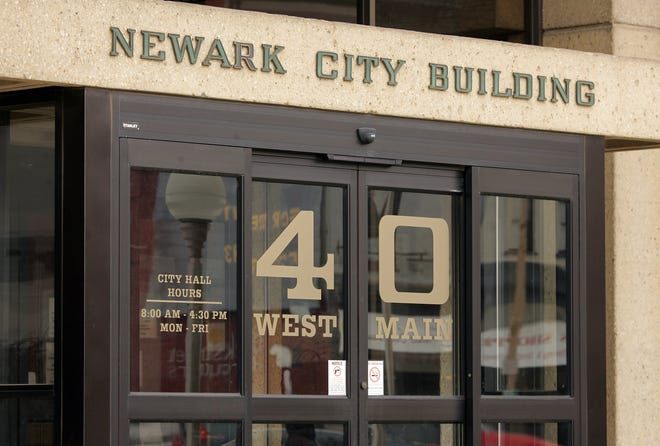
[ad_1]

NEWARK − Three years after hearing from angry residents about the volume of Roost on The River concerts, an updated noise ordinance awaits Newark City Council approval.
City Council’s Safety Committee voted 5-0 Monday night to amend the city’s noise and disorderly conduct ordinances, setting time and decibel level limits for entertainment venues.
The full council will consider the ordinances at its next meeting, Nov. 7 in council chambers, 40 W. Main St.
The noise ordinance sets limits of 60 decibels for residential areas from 7 a.m. to 10 p.m. Sunday through Thursday and 7 a.m. to 11 p.m. Friday and Saturday, unless a variance is obtained from the city safety director. During the overnight hours, the limit is 50 decibels.
Law Director Tricia Moore told council the proposed legislation exempts city of Newark and school-related events, as well as any event granted a variance. Moore, an assistant law director until becoming law director a year ago, said enforcement will be complaint-driven.
“Since I became law director, I heard one of the biggest things that this city needs is a noise ordinance,” Moore said. “So, from the very beginning, I’ve been meeting with various members of council, talking to the safety director, chief of police and business owners.
“We already have a noise ordinance. The problem with that ordinance is it was never really completed. It requires safety director to give permits applied for and posted and terms given. In my 18 years I’ve never seen this happen. Let’s take the system in place and make it work.”
So, Moore presented updates to the noise ordinance and the disorderly conduct ordinance, in response to complaints about Roost on The River and Newark Station music events. Roost on The River opened in 2008, at 14 Vogel St., east of West National Drive and south of the Licking River. Newark Station, the multi-use development venue at 325 West Main St., has hosted concerts since it opened last year.
The city will check decibel levels at the source of the complaint.
“Roost on The River is not in a residential neighborhood, but they can produce sound over the 60 decibels into a residential neighborhood,” Moore said. “They are responsible for the noise they are putting into a residential neighborhood. We are going to go to the site of the complaint and take a reading from their property.”
But, Moore said, a check of Roost on The River showed it was at 54 or 55 decibels.
In 2018, Roost on The River owner Sheri Mertz said they did receive some complaints after their first concert, but they want to work with neighbors to make sure the shows are good experiences for everyone.
Mertz said in 2019 the music center followed the city’s guidelines, stopping by midnight.
“We discussed the 11 o’clock shutoff,” Mertz said. “They allowed us to go to midnight. I think there’s some people you can’t make happy, but overall I think things are going well.”
Melinda Moulden, a Beacon Road resident, said she fears the music center could become even more of a problem for residents in the future.
“They’re trying to make it like a Legend Valley,” Moulden said. “They just got a new stage and a new sound system. So, they’re going to go bigger and better, is what they said.”
Moulden told council in 2019, she had to tranquilize her dog and had property destroyed from the vibrations of the music.
“What if they just pay the fine and go on with life?” Moulden asked.
Moore answered, “Whoever is in charge of that could go to jail.”
Moore said the second violation is a fourth-degree misdemeanor, which means a fine of up to $250 and could include jail time. She said it’s the owner of the outdoor venue or bar or restaurant who is responsible, not the band playing.
“If you’re the owner of a bar or restaurant and you agreed to have a band come in, they are going to have to understand that there are going to be limits on what they can do, based on the variance,” Moore said. “Ultimately, it’s the owner of the bar that is going to be held liable. If they have to shut it off, they have to shut it off. There’s got to be consequences. We have to protect residents.”
Moore said applicants for variances must be submitted at least 60 days in advance of an event. The variances could be sought to allow music later than the deadline or louder than the decibel level, she said.
“Our point is nor to shut businesses down,” Moore said. “My hope is business owners take charge of their building. This can be a very tricky thing to do because residents want to enjoy the peace and quiet of their home and businesses want to be able to have events and bring in business to their location.”
740-973-4539
Twitter: @kmallett1958
[adinserter block=”4″]
[ad_2]
Source link